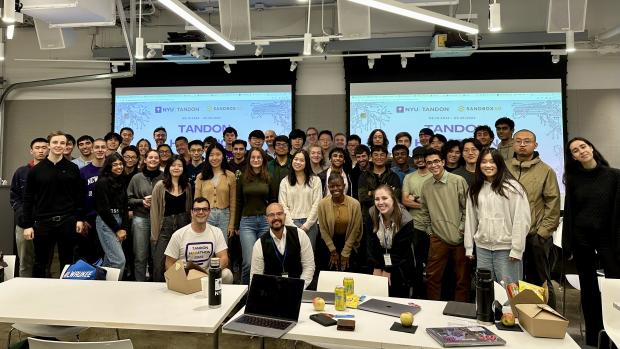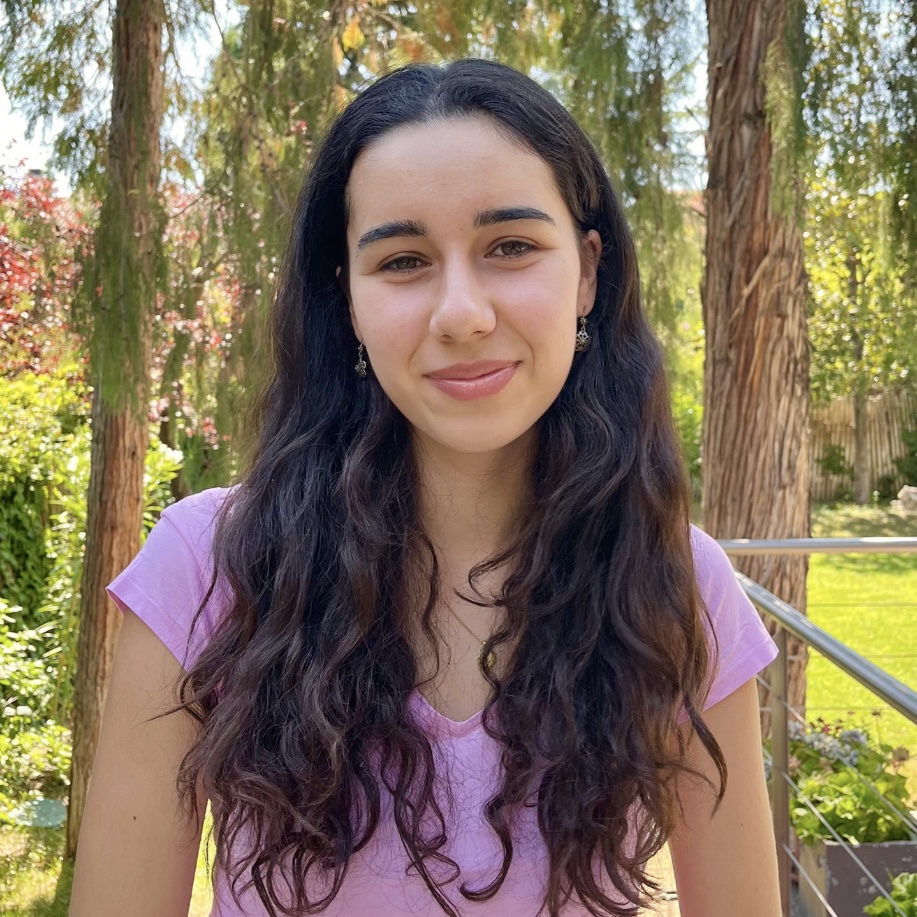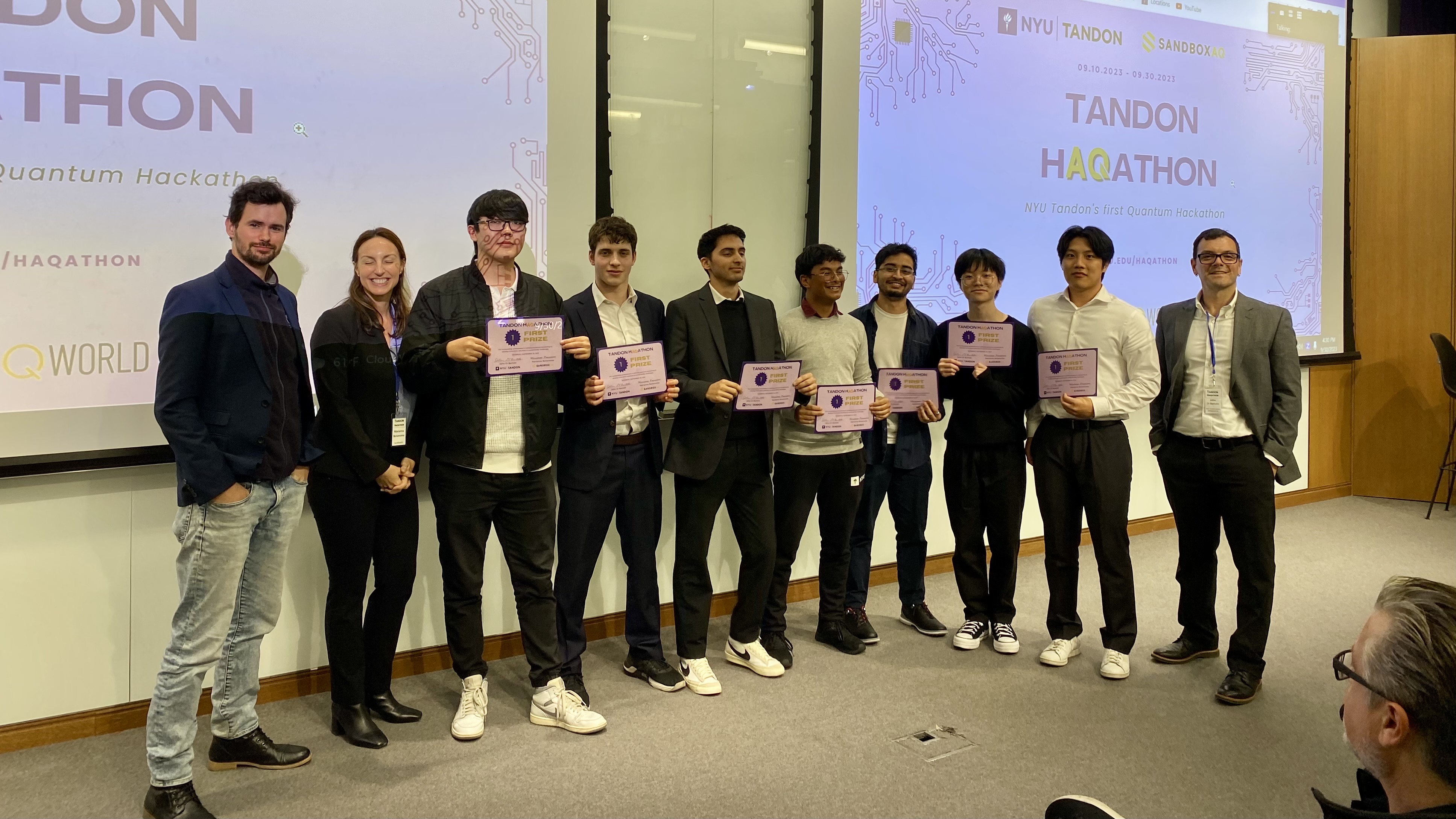What the “hAQ” is a hAQathon?
NYU Tandon hosts its first-ever quantum computing competition

There’s no question that the advent of the computer age represented an enormous leap forward for humankind — and we’ve made incredible technological progress since then: consider, for example, that at the time of the first Moon landing, NASA scientists had less computing power available than most of us literally carry around each day in the form of smartphones. But even in light of those strides, there are simply some problems that classical computers – which use binary digits (bits) with values of 1 or 0 – cannot help us solve.
 “Take protein folding,” NYU Tandon sophomore and GLASS scholar Elena Zubillaga Maharg explains. “If you are going to genetically modify a crop in order to increase its resilience or yield, you need to understand the optimal way of how proteins interact. This is based on their 3D structure, a result of them folding. But depending on the size of the protein, there are about 3 to the 198th power possible configurations, so the universe could die before a classical computer tries them all.”
“Take protein folding,” NYU Tandon sophomore and GLASS scholar Elena Zubillaga Maharg explains. “If you are going to genetically modify a crop in order to increase its resilience or yield, you need to understand the optimal way of how proteins interact. This is based on their 3D structure, a result of them folding. But depending on the size of the protein, there are about 3 to the 198th power possible configurations, so the universe could die before a classical computer tries them all.”
That’s where quantum computing, which employs quantum bits (qubits), comes into play. Qubits have two distinct states just like classical bits, but can also exist in superposition states. A computer using qubits can store enormous amounts of information, process it quickly (a million times faster than classical computers), and save energy while doing so.
This September NYU Tandon’s Department of Applied Physics held its first-ever “hAQathon” (a name derived from combining AI and quantum), inviting interested students to tackle a sustainability-related problem via quantum computing.
Zubillaga’s team — comprising applied physics majors like her — garnered third place in the competition for their protein-folding algorithm. “We were all aware of the issue of global food insecurity, and it was exciting to learn about how quantum computing can help in the development of heartier, higher-yielding GMOs,” she says. “But beyond the specific problem we chose to address, participating in the hAQathon opened our eyes to the ways in which the technology could impact us in the future, whatever professional endeavors we pursue.”
 Evan Brody, a Tandon mathematics and computer science double major and GLASS scholar from the Class of 2026, was also enthusiastic about the hAQathon, which drew more than 350 initial applicants and which was preceded by a series of classes that introduced students to the concepts they would need to take part in the event and awarded them certificates for successful completion. Brody – who was one of the top performers in those classes, according to Di Bartolo – admits that he knew little about quantum at the start. “The GLASS program, which stands for Global Leaders and Scholars in STEM, encourages us to get out of our academic comfort zone, and this seemed like a good opportunity,” Brody said. “I learned so much during the classes – including the fact that quantum computers are not intended to fully replace classical computers but are instead meant to solve complex problems that computers using bits just can’t handle. My team project used quantum computing in order to address inefficiencies in New York City’s subway system and optimize the planning of new lines and routes, and judges awarded us second-place honors.”
Evan Brody, a Tandon mathematics and computer science double major and GLASS scholar from the Class of 2026, was also enthusiastic about the hAQathon, which drew more than 350 initial applicants and which was preceded by a series of classes that introduced students to the concepts they would need to take part in the event and awarded them certificates for successful completion. Brody – who was one of the top performers in those classes, according to Di Bartolo – admits that he knew little about quantum at the start. “The GLASS program, which stands for Global Leaders and Scholars in STEM, encourages us to get out of our academic comfort zone, and this seemed like a good opportunity,” Brody said. “I learned so much during the classes – including the fact that quantum computers are not intended to fully replace classical computers but are instead meant to solve complex problems that computers using bits just can’t handle. My team project used quantum computing in order to address inefficiencies in New York City’s subway system and optimize the planning of new lines and routes, and judges awarded us second-place honors.”
“I hoped that the hAQathon would get students excited about the possibilities of quantum computing, and if Elena and Evan are any indication, we succeeded beyond our wildest expectations,” Di Bartolo said. “The event was meant, in part, to stimulate interest in an upcoming minor in Quantum Technology we are rolling out in the spring, and because demand for people with quantum training and expertise is only going to grow, our students will be on the cutting edge of a burgeoning field.”
Congratulations to the first-place winner, Team Qommute

Team Qommute’s project focused on quantum algorithms and machine learning to add Citi Bike docks at optimal locations and to implement real-time route optimization for the NYC bus system.




